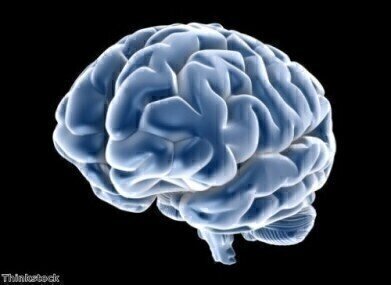-
 'Miniature brains' have been grown from stem cells in two months
'Miniature brains' have been grown from stem cells in two months
Bioanalytical
Lab grows 'mini human brains'
Aug 29 2013
Human brain tissues have successfully been grown in a laboratory from stem cells. The 'miniature brains' have been developed using a new £D culture system, which has resulted in pea-sized structures being grown. The latest study has been published in the journal 'Nature'.
Scientists have managed to grow miniature versions of human brains that are similar to a nine-week-old foetus' brain development. While the complex brain tissue shows high levels of development, scientists said that it is not capable of thought.
The miniature brain structures were grown by researchers from the Institute of Molecular Biotechnology (IMBA) at the Austrian Academy of Sciences (OeAW). It is possible that the tissue could lead to the development of human brain model systems and help to understand how certain diseases are affected. It could also possibly help to create new treatment processes for certain types of illnesses.
Mouse embryonic fibroblasts were used to establish induced pluripotent stem (iPS) cells and embryonic stem cell lines. Scientists were able to recognise and document the growth conditions that allowed the stem cells to become different types of brain tissue.
Scientists used a previously research approach and modified it so as to produce neuroectoderm, which the nerve system grows from. They then used 3D culture to allow the complex tissues to grow in a gel base. Once the tissue had developed further it was placed in a spinning bioreactor, which resulted in the growth of definable brain regions within a period of three to four weeks. In total the process of growing the miniature brains took only two months and have so far survived for ten months.
The tissue reached a maximum size of four millimetres and, although they do not resemble a fully developed brain, the advances that they could help with are many.
Doctor Juergen Knoblich, one of the researchers, said: “This is one of the cases where size doesn't really matter. Our system is not optimised for generation of an entire brain and that was not at all our goal. Our major goal was to analyse the development of human brain (tissue) and generate a model system we can use to transfer knowledge from animal models to a human setting.”
Digital Edition
Chromatography Today - Buyers' Guide 2022
October 2023
In This Edition Modern & Practical Applications - Accelerating ADC Development with Mass Spectrometry - Implementing High-Resolution Ion Mobility into Peptide Mapping Workflows Chromatogr...
View all digital editions
Events
Apr 23 2024 Kintex, South Korea
Apr 23 2024 Seoul, South Korea
Apr 28 2024 Montreal, Quebec, Canada
May 05 2024 Seville, Spain
May 15 2024 Birmingham, UK













